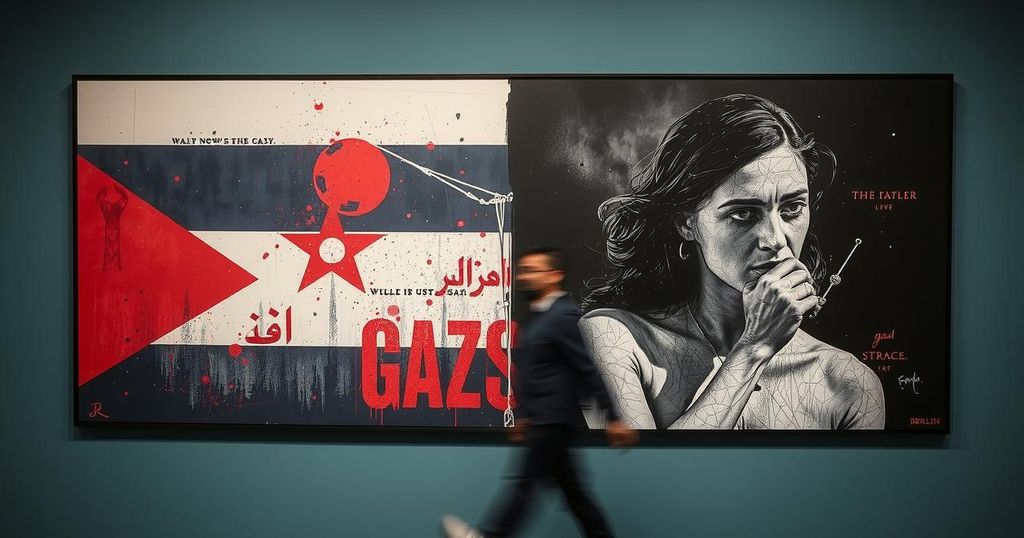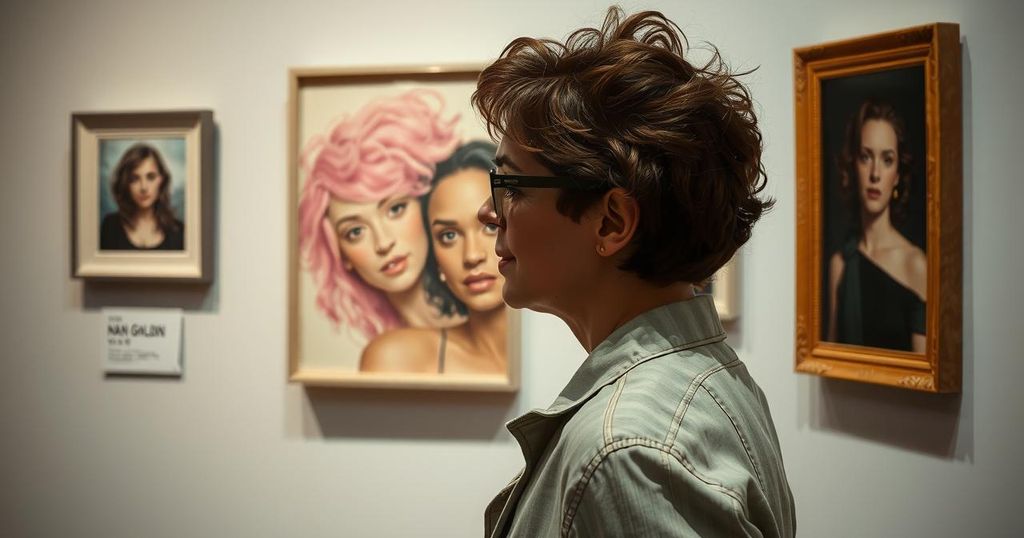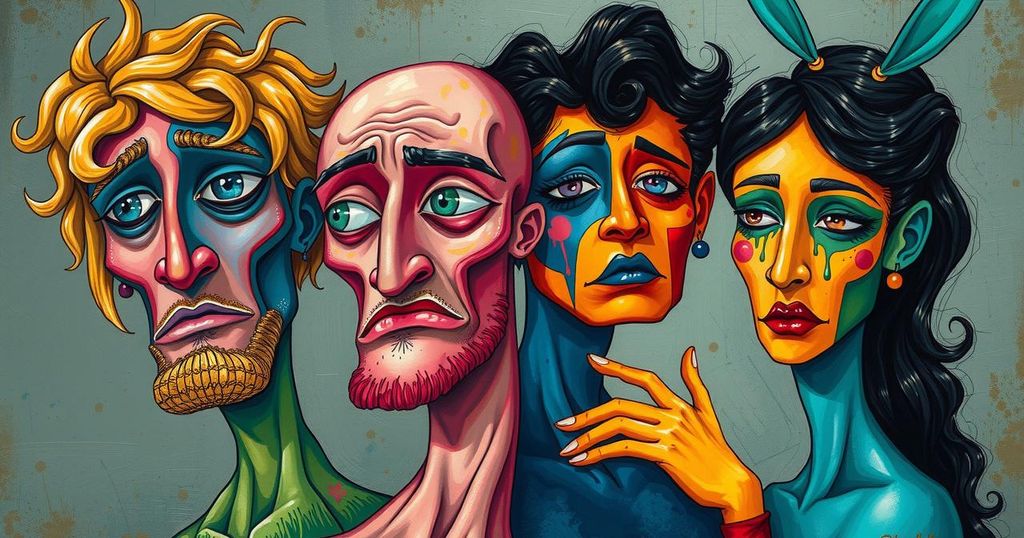In a recent development, artist Nan Goldin has incorporated a message addressing the casualties in Gaza, Lebanon, and the West Bank into her exhibit showcased at Berlin’s Neue Nationalgalerie. This addition follows her allegations of censorship against the museum after initially being barred from including her statement regarding the Israel-Palestine conflict in her renowned slideshow, “The Ballad of Sexual Dependency.” Goldin’s statement highlights solidarity with those affected by violence, emphasizing both Palestinian and Israeli casualties.
The controversy began when Goldin accused the museum’s management, including director Klaus Biesenbach, of stifling her political voice and denying her space to express mourning within her exhibit. In her original statement, she highlighted those harmed during the October 7 Hamas attack yet faced resistance from the museum, which countered that her initial version did not mention any victims from that incident. After negotiations, a revised statement was permitted, recognizing both the victims in Gaza and the Israelis.
Goldin’s exhibition had already faced scrutiny over her pro-Palestinian stance, intensified by her participation in a letter advocating for a ceasefire in Gaza. During her opening speech in Berlin, Goldin condemned Germany’s treatment of pro-Palestinian voices and labeled Israel’s military actions in Gaza as genocide. In a contrasting reaction, Biesenbach acknowledged his disagreement with Goldin, affirming Israel’s right to exist while empathizing with all victims of violence, creating a charged atmosphere at the exhibition’s launch.
Nan Goldin’s recent addition of a political statement to her artwork in Berlin highlights the ongoing tension between artistic expression and institutional censorship. While Goldin aimed to address the humanitarian crisis resulting from the Israel-Palestine conflict, her experience reflects broader issues of freedom of expression in the art world. The dialogue between Goldin and Biesenbach illustrates the differing perspectives within this contentious geopolitical landscape, making the exhibition not just an artistic showcase but a platform for critical discussion.




